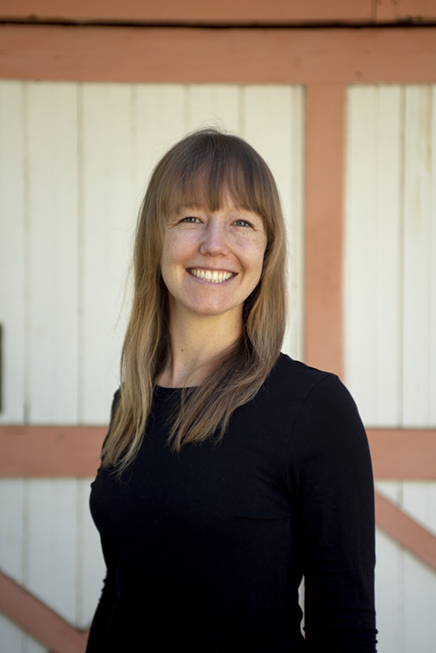Middlebury Team Makes Finals of National Anti-Extremism Competition
| by Mark C. Anderson
A multidisciplinary group of Institute students traveled to D.C. to present the AI tool they developed in the national finals of Invent2Prevent.

Phoebe Jones had a clear plan as she embarked on her second master’s degree. Or so she thought.
“I wanted to work in humanitarian aid and international policy,” Jones said.
However, Jones received early advice to reach out to the Center on Terrorism, Extremism, and Counterterrorism (CTEC), partly because of her unique academic background: a Master of Divinity from Yale Divinity School.
“I could not have had more skepticism. I thought, that’s not really my thing,” said Jones, who ended up working as a graduate research assistant at CTEC for the entirety of her time at Middlebury Institute. “This field was not on my radar, but [CTEC] really shaped my program and interests.”
Graduate research assistants (GRAs) at CTEC work alongside leading experts and researchers, applying newly honed skills in quantitative and qualitative analysis and academic writing to research projects that address urgent global topics.
CTEC employs about five graduate research assistants each semester, as well as two Michael Donnelly Fellowship positions annually.
“Our GRAs become steeped in understanding the darkest corners of the Internet and the dark net. Further, they become alert to coded language and dog whistles that extremists proliferate to polarize online communities,” said CTEC Executive Director Jason Blazakis, who is also a professor in the Institute’s nonproliferation and terrorism program. “Often, these skills are best developed outside the classroom, and CTEC provides the forum for that type of experiential learning.”
That experience sets CTEC’s GRAs apart from others entering this emerging and competitive job market.
“As job markets continue to evolve, it is critically important that students not only ace their coursework, but that they apply knowledge practically. CTEC provides a space to do just that,” Blazakis said. “We’ve seen CTEC GRAs often among the first hired by employers, especially in the tech industry. Those in the tech sector know that a CTEC GRA is ready to hit the ground running.”
Jones echoed the value of CTEC’s approach of empowering students to collaborate alongside experts as they dive into the murky world of countering terroristic threats.
“My degree program was supplemented and defined by my work at the center,” Jones said. “I found myself in a graduate research position but tasked with real-world application.”
After Jones graduated, research she published while working at CTEC was picked up in media coverage of the Biden/Trump election. Jones’s research on Christian nationalism, politics, and masculinity was cited in a piece on MSNBC.com on the controversial “God Made Trump” video from January 2024.
Jones said her professional divinity school background aids her research, both when diving into Christian nationalism and also when engaging in conflict transformation work in general.
“My overarching study of religion has been informed by a desire to understand human behavior and relationships and helps me engage questions about suffering, purpose, death, and joy in different ways,” Jones said.
Jones wrote the piece with guidance and support from CTEC staff like Dr. Amy Cooter, director of research, academic development, and innovation (RADI).
“Amy encouraged me to go after this idea and explore the connections I was making,” Jones said. “And now I knew I could write a thoughtful analysis of something that was real-time happening in the world.”
Jones’s research continues to attract attention as she starts her career in the field of preventing violent extremism.
“That article was the one that really empowered me to stay in this field because I saw I had something to contribute. I can write relevant work and my voice matters, because of Amy’s encouragement and support.”
Jones encourages new students at the Institute to remain open and curious while in graduate school.
“There’s so much to learn beyond your expectations of what you think you’ll learn,” said Jones.
Master of Arts in Nonproliferation and Terrorism Studies
Center on Terrorism, Extremism, and Counterterrorism
| by Mark C. Anderson
A multidisciplinary group of Institute students traveled to D.C. to present the AI tool they developed in the national finals of Invent2Prevent.
| by Jason Warburg
Student Emma Scherer MANPTS ’25 built her professional connections and credentials through an internship at Lawrence Livermore National Laboratory.
| by Elizabeth Bone
Want to work in international security? Join Professor Jeffrey Knopf and Elizabeth Bone, career and academic advisor, for an in-depth discussion on how to launch your career.
Video